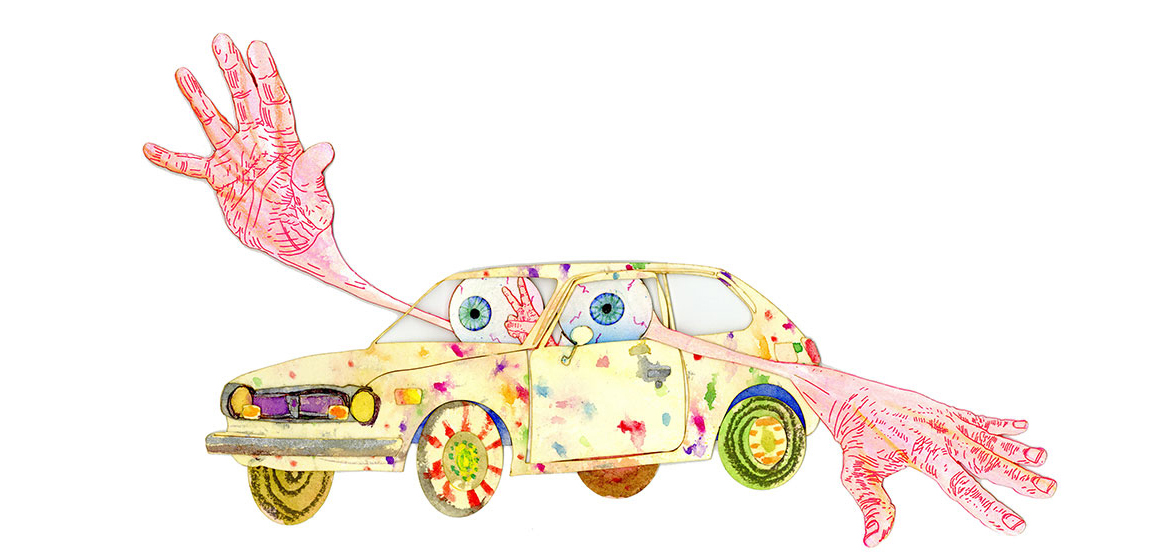
Michael Krueger’s art is brightly colored and funny, but, like his MAD magazine inspirations, there is a serious subtext of interpersonal, international politics behind the floating cubist noses and revving hot rods.
The University of Kansas professor of visual art will take his show on the road again to Paraguay for an exhibition that opens Dec. 4 at a new contemporary gallery in that nation’s capital, Asunción. It is the outgrowth, Krueger said, of an exchange program from 1996 that brought the acclaimed Paraguayan artist Carlos Colombino to KU for a residency.
When Colombino reciprocated by inviting him down to Paraguay to show his work in 1997, Krueger said, “I met all these wonderful young artists and connected with so many people there.” He returned again in 2001 and has since hosted other Paraguayan artists here. He likes the Paraguayan art scene for its intergenerational collegiality and distinct lack of competitiveness, he said.
Carlos Colombino died in 2013, but his daughter, Lia Colombino, invited Krueger back for a solo show at the new Galeria Fuga Villa Morra, which she helped to establish.
“I am honored to be, so far, the only U.S. artist to show at Fuga Villa Morra, run by the stalwart of the scene, the great Bettina Brizuela,” Krueger said.
Krueger thanked the KU-UCR Exchange Support Fund for grant funds to make the art and to pay for his air travel. After working on some rather large paintings in recent years, Krueger deliberately created smaller works on paper for this show that he can carry himself back and forth on the airplane. The works are a combination of computerized drawing, physical collage and colored-pencil tinting.
Krueger said he has been working with Lia Colombino via email, phone and FaceTime in her role as the show’s curator. Its title is “Nobody’s Perfect: A Political Message of Imperfection.”
All the Basil Wolverton- and Ed “Big Daddy” Roth-inspired grotesquerie, he writes in his artist’s statement, “is simply about giving space to absurdist thinking and offering a moment of humor and hope. It is the radical idea that accepting you for who you are might be a politically healthy position, that encouraging this position might help others, and lead to changed attitudes. Changed attitudes may be the best solution we have to fighting hate and self-loathing, moving ever closer to a culture of empathy and acceptance.”
Krueger has given each drawing a title and written some text about it, which has been translated into Spanish. In addition to the original artwork on the gallery walls, Krueger will offer for sale handmade, spiral-bound books collecting the prints and displaying their titles on the facing pages.
The images in the show and book, Krueger wrote, are “about being real, accepting one's flaws, finding delight in perfections and acknowledging that everyone has defects of character that make them human. The images are unique examples of internalized imperfections, manifest as cars, eyeballs, hand gestures and bananas. Each offers cultural clues to a life lived in imperfect ways. The texts are designed to help decode the images through optimism, and images that encourage mindfulness.”
Original source can be found here.

 Alerts Sign-up
Alerts Sign-up